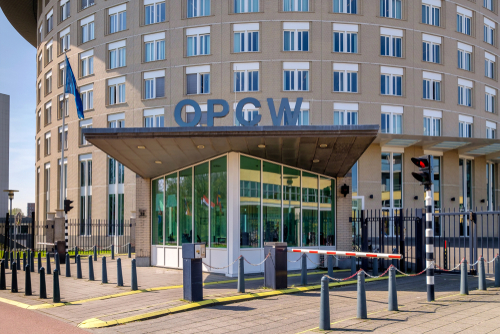
The head of the Organization for the Prohibition of Chemical Weapons (OPCW) issued a statement about the alleged poisoning of Russian opposition leader Alexei Navalny.
“Under the Chemical Weapons Convention, any poisoning of an individual through the use of a nerve agent is considered a use of chemical weapons,” OPCW Director-General Fernando Arias,” said. “Such an allegation is a matter of grave concern. States Parties to the Chemical Weapons Convention deem the use of chemical weapons by anyone under any circumstances as reprehensible and wholly contrary to the legal norms established by the international community. The OPCW continues to monitor the situation and stands ready to engage with and to assist any States Parties that may request its assistance.”
A German military lab found Novichok, a Soviet-era nerve agent, in Navalny’s body. It was the same substance found in KGB spy Sergei Skripal’s system when he was poisoned in Great Britain in 2018.
Navalny, the leader of Russia’s Progress Party, became ill on a flight from Moscow to Tomsk on Aug. 20. Two days later, he was airlifted to a hospital in Berlin where he remains in stable condition
OPCW was established in 1997 as the implementing body for the Chemical Weapons Convention. OPCW, with its 193 Member States, works to permanently and verifiably eliminate chemical weapons to strengthen international security. Since the organization launched, over 98 percent of all chemical weapon stockpiles declared by possessor States have been destroyed under OPCW verification. For its efforts, OPCW received the 2013 Nobel Peace Prize.

